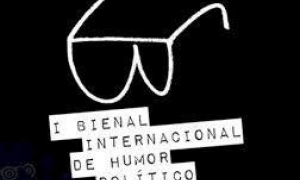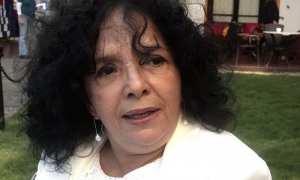
At a time when, paradoxically, embraces can harm us, we remember an author who dedicated a book to them and, as if that wasn’t enough, explained with firm words that the gesture must become a weapon of solidarity to banish capitalism - that suffocates and kills - from the face of the planet.
If remembering is an invitation to return in our hearts, let us do so today, recalling someone who taught us simple ways of loving, with his effusive and profound pen; someone who, although he still lives among us, embarked on a definitive journey five years ago.
There is no title of his that was not solidly committed to justice in the world. Reading Eduardo Galeano brings us together with the faceless, provoking responses in readers that exalt the human condition. We could have had the experience with The Open Veins of Latin America, written when he was only 30 years of age, with such forceful truths that, although it contributed to open "spaces of freedom," it was banned by dictators in the continent’s Southern Cone.
It doesn't matter if we heard him in the testimonial voice of Days and Nights of Love and War, where the truths described disturb even the peace of those who don't wish to get involved, or if the our first approach was through Upside Down: A Primer for the Looking-Glass World, published in Spanish in 1998, in which eternalized in writing are shameful realities that bother the most skeptical consciences, and create consciousness.
While readers not only succumb, but are enlisted and define themselves, confronted with these works and others not mentioned, seduced by the historical narrative, the wealth of information, the anecdote that ends in apparent simplicity, or curiosities that inspire, the invitation extended in these lines today is to revisit Mirrors, an almost universal story, the book of more than 400 pages that he presented during his last visit to the Casa de las Americas in Havana, an institution that recognized the title with its José María Arguedas Narrative Award in 2011.
At the Casa, Galeano read several of the more than 600 stories that compose this unique book, which parades principal and secondary actors of this great "novel" that is human civilization, almost chronologically, from its genesis to the present.
Over the first pages, some questions that require answers emerge: Have we not been able to survive, when survival was impossible, because we knew how to defend ourselves together and share our food? Would this present humanity, this civilization of every man for himself, have lasted very long in the world? (How were we able to survive?)
Well into the reading, when we can longer put the book down, comes “Little humans, we cannot avoid the shame.”
“We no longer know if we are God's masterpieces or bad jokes by the Devil. / We, the little humans / the exterminators of everything / the hunters of our neighbors / the creators of the atomic bomb, the hydrogen bomb and the neutron bomb, which is the healthiest of all because it annihilates people but leaves objects intact/ the only animals that invent machines / the only ones that live in the service of the machines they invent / the only ones who devour their home/ the only ones who poison the water they drink and the land that gives them something to eat / the only ones capable of renting or selling themselves and their fellows / the only ones who kill for pleasure / the only ones who torture / the only ones who rape. / And also the only ones who laugh / the only ones who daydream / the ones who make silk from worm slime / the ones who turn garbage into beauty / the ones who discover colors that the rainbow doesn't know / the ones who give new music to the world’s voices / and create words, so that neither reality nor its memory are mute.”
There is no better time than now to revisit the author of embraces, who bet on hope and the never-ending battle, as collective fear and the struggle for life’s light demand that new chapters of our history have a less horrifying end, for all of humanity.






